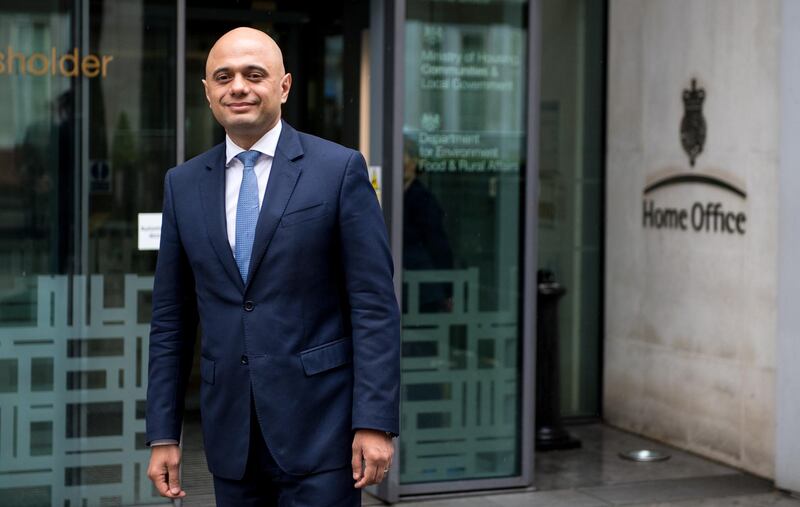As leading contender for the role of Britain’s interior minister, Sajid Javid made an eye-catching public intervention on the eve of being tapped for promotion.
The former Deutsche Bank trader and Conservative high flier spoke of his own personal pain hearing of problems facing the Windrush Generation. “I thought that could be my mum, my dad, my uncle – it could be me,” he told a newspaper on Sunday.
A day later, he was elevated to handle a raging political firestorm. While the scandal has focused on Carribean subjects – who came to Britain in a wave of migration following the Second World War on the ship HMT Empire Windrush – all corners of the Commonwealth have felt the rough edges of British immigration policy in the last half century.
Amber Rudd was forced to resign as the previous Home Secretary having admitted what she had dismissed as individual cases gone wrong was in fact a system-wide failure.
Mr Javid’s reaction to the revelations was tellingly far more visceral than that of his colleagues. “My parents came to this country from Pakistan, just like the Windrush generation,” he said. “They came to this country to help rebuild it [and] they came from Commonwealth Countries,” he said.
Now the occupant of one of the so-called great offices of state, Mr Javid’s calling card is his deep attachment to a country that enabled the first generation son of migrants to prosper. His father worked for a time in a cotton mill and was a bus driver.
After university, where he met his wife, Mr Javid earned millions of pounds in a career as an international banker with postings in New York and Singapore. But following the global financial crisis in 2008, he experienced a change of heart and chose to return to Britain to enter politics.
Representing since 2010 a constituency near Birmingham, a city that is the fulcrum of Britain’s multi-cultural revolution, Mr Javid has risen rapidly, entering the cabinet in 2014 and is now on his fourth departmental posting.
While formally practicing no religion, he has made clear that his Muslim upbringing has formed his character. The 48-year old has had the confidence to inject his views into debates over religion and social cohesion.
He has asked why some children from his background grow up to be surgeons and others to plant bombs. Speaking just after his rise to the cabinet and following the Charlie Hebdo attacks in Paris in early 2015, Mr Javid said bluntly that extremists were using Islam as they perpetrated their campaigns of hatred.
“The lazy answer would be to say that this has got nothing whatsoever to do with Islam or Muslims and that should be the end of that.That would be lazy and wrong,” he said. “You can’t get away from the fact that these people are using Islam, taking a peaceful religion and using it as a tool to carry out their activities.
“If we are going to challenge such attitudes, civic and political leaders have to lead by example,” he added.
Since the rise of Theresa May to 10 Downing St in 2016, Mr Javid has held departmental responsibility for Britain's community relations, which includes the many disputed issues surrounding the role of religions in society.
He has proven an incremental reformer. Despite widespread pressure, he has not taken new measures against Muslim Brotherhood groups.
The Communities department has embraced parts but not all of the work of Dame Louise Casey. A review he order recommended schoolchildren be taught “British values” of tolerance, democracy and respect to forestall growing “ethnic segregation”.
The strategy incorporated his advocacy of an oath of loyalty. “We can’t expect new arrivals to embrace British values if those of us who are already here don’t do so ourselves, and such an oath would go a long way to making that happen,” he once said.
In his new Home Office role, Mr Javid will oversee the work of Sara Khan at the new Commission for Countering Extremism which has been targeted by activists keen to blunt its effectiveness.
The Home Secretary is ultimately charged with defending British security, including that of London, which faced an onslaught of terror attacks just a year ago.
In keeping the capital safe, Mr Javid will share the burden with Sadiq Khan, the mayor of London and a Labour former cabinet minister. The two men have something else in common. Their Pakistani fathers worked as bus drivers as they reared their now famous sons.






